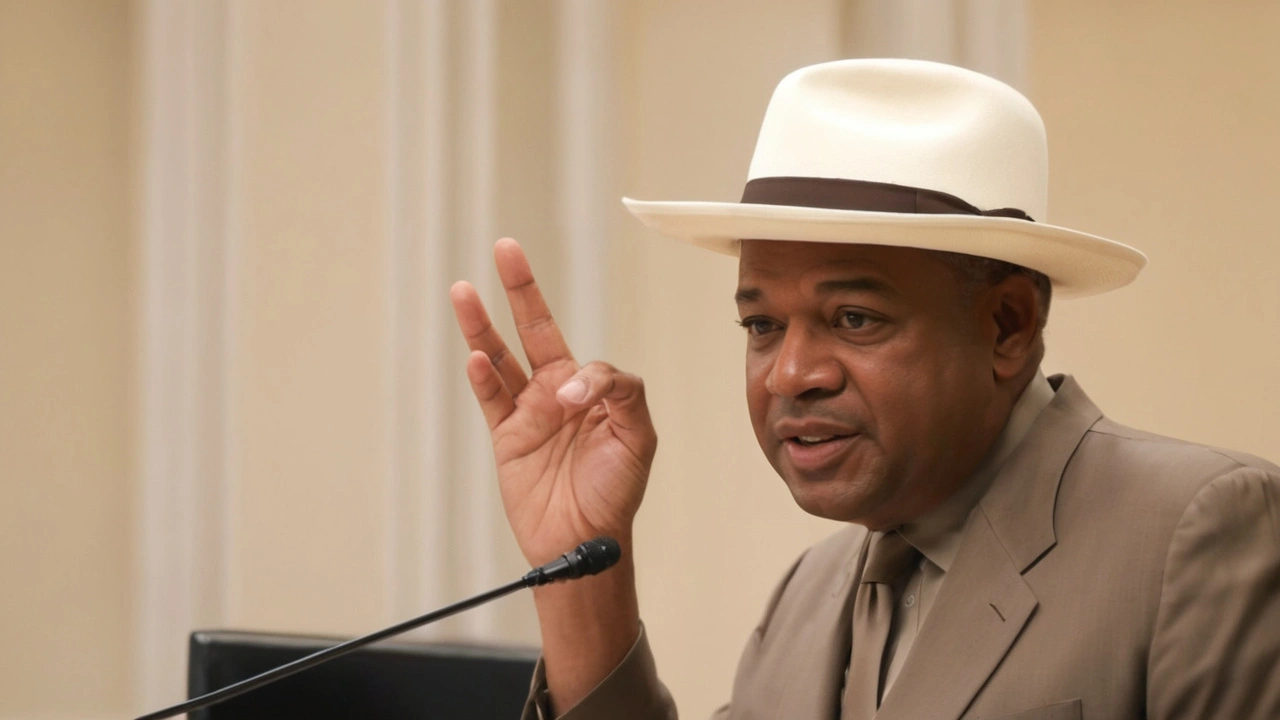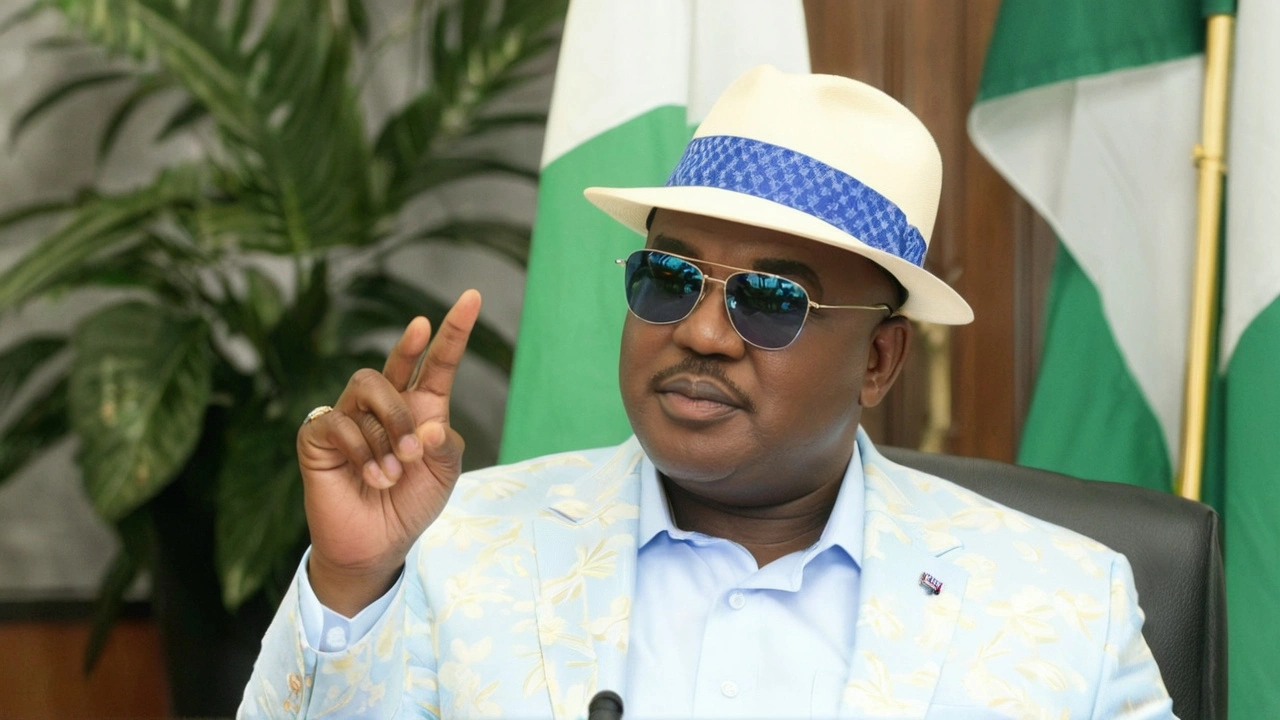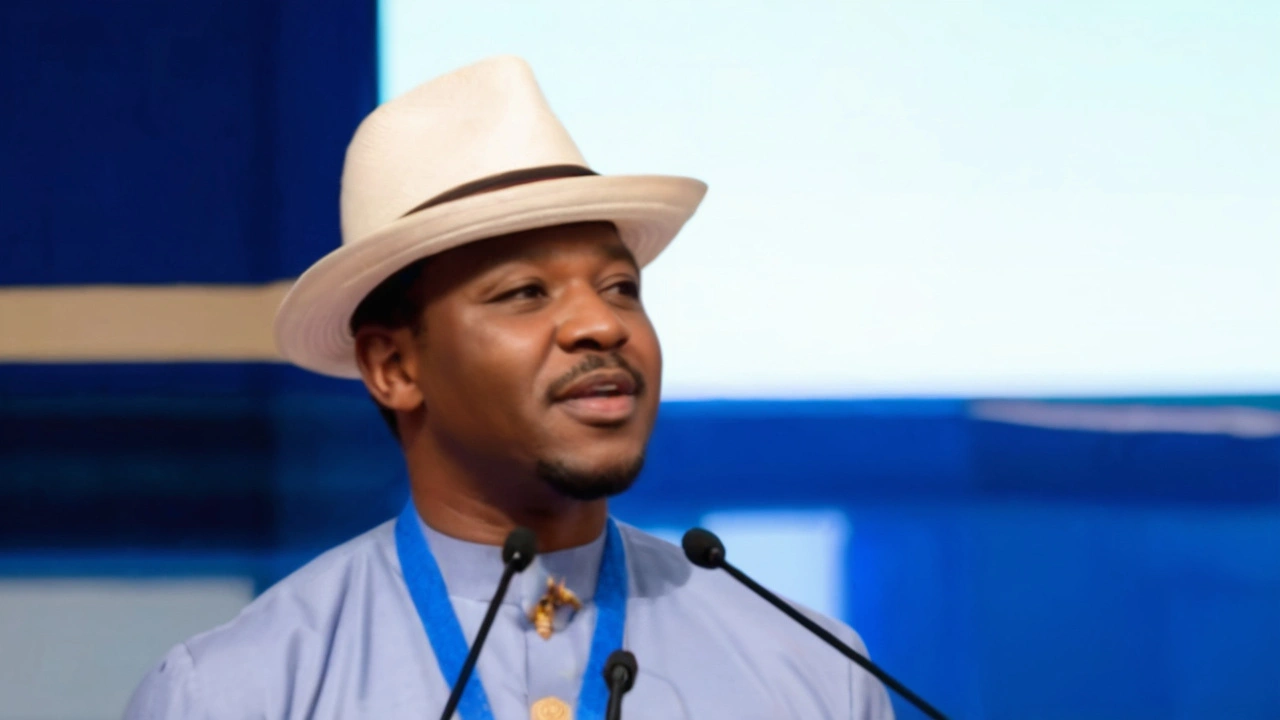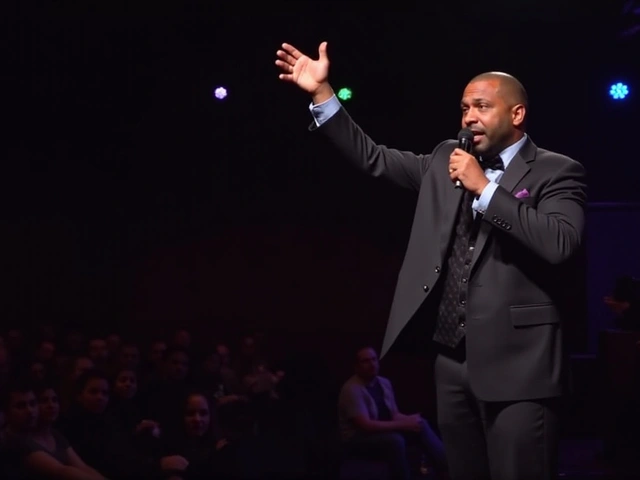In a startling revelation, Nyesom Wike, the Minister of the Federal Capital Territory (FCT), has announced that security agents have identified a Senator who is allegedly sponsoring the ongoing #EndBadGovernanceInNigeria protests. These protests, aimed at President Bola Tinubu's government, have been characterized by widespread participation across the country. Wike divulged this information during a press briefing following an intensive security meeting with various heads of security agencies in Abuja.
The protests commenced on Thursday, August 1, and quickly escalated in Abuja and several other regions. Despite numerous warnings from the government advising citizens to refrain from participating, the movement has consistently grown. The involvement of a Senator in sponsoring these protests adds a new dimension to the political dynamics surrounding the demonstrations. Wike stated that the Senator in question had been seen guiding security agents to provide food to the protesters. This act, according to the Minister, serves as clear evidence of the Senator's involvement in backing the protest.
During his address, Wike highlighted the necessity for protesters to comply with a specific court order. This order restricts demonstrations to the Moshood Abiola National Stadium, following incidents of violence and fatalities reported on the inaugural day of the protests. Wike raised concerns over potential plans by certain miscreants to hijack the protests for destructive purposes. He reassured that security operatives were poised to curb any such attempts decisively.
Wike continually stressed the importance of obeying the rule of law and adhering to court orders. He acknowledged the constitutional right to protest but emphasized the need for such activities to be conducted within legal boundaries. The Minister urged those participating in the protests to confine their gatherings to the designated Moshood Abiola National Stadium. By doing so, he argued, they could address their grievances without causing harm or destruction to public and private properties.
The protests, which have seen a varied demographic of the Nigerian populace taking to the streets, encapsulate significant discontent with the current administration's policies. Issues such as economic hardships, insecurity, and perceived corruption have been at the forefront of the demonstrators' demands. However, the government's stance remains firm on maintaining order and ensuring that expressions of dissent do not spiral into chaos.
Impact on the Political Landscape
Wike's revelation about the Senator's involvement introduces a notable twist to an already tense political atmosphere. It suggests that dissent against the government may not just be a grassroots phenomenon but could also include challenges from within the political elite. This disclosure begs the question of how deep the rift within the political hierarchy is and what implications it might hold for governance and stability.
In Nigerian politics, sponsorship of protests by influential figures is a double-edged sword. On one hand, it can galvanize support and lend credibility to the protesters. On the other, it can be perceived as political machination, thereby polarizing public opinion. The identification of a Senator as a financier not only brings to light the involvement of high-profile personalities but also the complexities in managing public dissent within a democratic framework.
Security Measures and Public Safety
In light of the situation, security agencies have ramped up their measures to ensure public safety and maintain order. The apparent sponsorship of the protests by a political figure compels a more nuanced approach to handling the demonstrations. Law enforcement agencies are now tasked with distinguishing between legitimate protesters exercising their democratic rights and those potentially instigating violence under the guise of protests.
The call to restrict protests to the Moshood Abiola National Stadium stems from practical reasons. Containing the demonstrations within a controlled environment minimizes the risk of property damage and reduces the likelihood of clashes between protesters and security personnel. Wike's emphasis is on striking a balance between allowing free speech and preventing anarchy.
One cannot overlook the anxiety among residents in regions where protests have been most intense. Reports of violence and casualties evoke memories of past civil unrests, spurring fear and uncertainty. The government's challenge lies in managing valid public grievances while forestalling a descent into widespread disorder.

The Broader Context: Governance and Public Sentiment
The #EndBadGovernanceInNigeria movement reflects a broader sentiment of dissatisfaction among Nigerians. Economically, the country faces challenges such as high unemployment rates, inflation, and dwindling foreign reserves. Socially, issues like insecurity, inadequate healthcare, and education systems add to the fuel igniting public discontent.
President Tinubu's administration, still relatively new, is under immense pressure to deliver on campaign promises and restore faith in government effectiveness. The protests signal a demand for tangible improvements in governance and better living conditions. Addressing these demands while keeping public order intact is the administration's formidable task.
The Role of Media and Communication
Media coverage of the protests plays a significant role in shaping public perception. Responsible journalism requires a careful balance, reporting on the protesters' grievances and the government's actions without inciting further unrest. This delicate balance is crucial in ensuring that information disseminated to the public is accurate and aids in constructive dialogue rather than division.
Social media, in contrast, often acts as an unfiltered platform where emotions run high, and misinformation can spread rapidly. The government and security agencies face the added challenge of countering false narratives while protecting freedom of speech.

Future Implications and the Way Forward
As the situation unfolds, the implications for Nigeria's political future are significant. The identification of a Senator as a protest sponsor raises questions about political unity and the dynamics within the ruling party. It also underscores the importance of transparency and accountability in governance.
Moving forward, it is essential for the government to engage in meaningful dialogue with the protesters, addressing their concerns with concrete actions. Ensuring that protests remain peaceful and lawful is equally vital. At the same time, understanding the root causes of the discontent and working towards sustainable solutions will be crucial in restoring public trust and stability.
The unfolding events are a reminder of the delicate balance required in maintaining democracy. While the right to protest is fundamental, so is the maintenance of law and order. The coming days and weeks will undoubtedly be a test of the government's capacity to manage both effectively.






Posts Comments
Irigi Arun kumar August 3, 2024 AT 18:49
Look, I get that people are frustrated-Nigeria’s got real problems, no doubt. But sponsoring protests through backdoor channels? That’s not activism, that’s political theater with a side of chaos. If you truly care about governance, you don’t fund mobs-you build institutions. The senator’s move, whether noble or nefarious, undermines the very rule of law he claims to uphold. Real change doesn’t happen in the streets when it’s bankrolled by someone with a seat in the senate. It happens in committees, in policy papers, in quiet negotiations with civil society. This isn’t rebellion-it’s a power play dressed up as justice.
And let’s be honest: if this senator wanted to help, he could’ve pushed for transparency reforms in the budget, or demanded audits of security spending. Instead, he’s playing hero to a crowd that doesn’t even know his name. That’s not leadership. That’s performative sabotage.
Democracy isn’t a TikTok trend. It’s not about who shouts loudest or who drops cash to stir the pot. It’s about accountability, patience, and the slow, grinding work of building systems that outlast personalities. We’re seeing the same script play out everywhere: angry masses, opportunistic elites, and a government too busy reacting to actually leading. Nigeria deserves better than this circus.
If you’re serious about ending bad governance, don’t follow a senator’s money. Follow the data. Follow the laws. Follow the people who’ve spent decades working inside the system to fix it, not blow it up. The street is loud, but it’s not wise. And wisdom is what Nigeria needs right now, not more fireworks.
Let’s stop romanticizing chaos. Real change doesn’t come from riots funded by senators. It comes from voters who show up, from journalists who dig deep, from judges who don’t bend. That’s the work. And it’s boring. Which is exactly why nobody’s paying for it.
So yeah, I’m calling it: this isn’t a protest. It’s a power vacuum with a hashtag.
Jeyaprakash Gopalswamy August 4, 2024 AT 23:32
Man, I feel you. I’ve seen protests in my own country-people just want to be heard. But this whole senator thing? Feels like someone’s trying to turn a movement into a political weapon. I’m not saying the people aren’t right to be mad-prices are insane, security’s a joke, and no one’s listening. But when someone with power starts funding it? It gets muddy.
Maybe he’s trying to help. Maybe he’s trying to undermine the president. Or maybe he’s just scared of what happens if this keeps growing. Either way, the protesters? They’re just regular folks trying to survive. They shouldn’t be pawns in some elite game.
Hope the government doesn’t crack down too hard. And hope the senator’s not just using this to look like a hero while his own record’s full of holes. We need solutions, not spectacles.
ajinkya Ingulkar August 6, 2024 AT 16:14
Let me be crystal clear: this senator is a traitor to Nigeria. Not just to the president, but to the nation itself. You don’t fund chaos. You don’t bankroll anarchy under the guise of ‘justice.’ This is exactly what foreign powers and internal saboteurs want-divide, destabilize, destroy. The fact that a sitting senator would do this proves how rotten the system has become. But don’t fool yourself-he’s not a hero. He’s a parasite feeding off the suffering of ordinary Nigerians to advance his own agenda.
Security agencies should arrest him. Not just for funding illegal protests, but for treason. The court order exists for a reason. To protect lives, property, and the integrity of the state. And yet, here we are-someone with a senate seat turning citizens into weapons.
Every Naira spent on food for these protesters? That’s Naira stolen from schools, from hospitals, from roads. He’s not helping-he’s stealing from the poor to make himself look good. And the media? They’re dancing around it like it’s some noble act. Wake up. This isn’t revolution. This is coup-adjacent sabotage.
If you support this, you’re not for justice. You’re for anarchy. And anarchy always benefits the powerful. The people suffer. Always.
nidhi heda August 7, 2024 AT 12:27
OMG I CANNOT BELIEVE THIS IS HAPPENING 😭😭😭
Like… a SENATOR???! Funding protesters?? Is this a Netflix documentary?? I’m crying. I’m shaking. I’m rewatching the video 17 times. Who IS this senator?? I need to know his name. I need to follow him on Twitter. I need to make a fan page. This is the most dramatic thing since the 2023 election 😭😭😭
Also-did anyone see the video of him handing out Indomie? I’m not even mad. I’m inspired. He’s the real MVP. The real king. The Nigerian Batman. I’m starting a petition: ‘Let Senator X Run for President in 2027’ 💪🏽❤️
Someone make a TikTok trend: #SenatorOfThePeople 🕊️🍜
DINESH BAJAJ August 7, 2024 AT 13:55
Of course a senator’s behind this. Where else would the funding come from? The government’s been lying about everything-fuel subsidies, inflation, electricity. This is just the tip of the iceberg. But don’t fall for the narrative that this is about ‘justice.’ It’s about power. Always has been. The senator’s not helping the people-he’s trying to replace the president. That’s not reform. That’s regime change by proxy.
And don’t tell me ‘they have a right to protest.’ Sure they do. But when you’re funded by someone who’s been in power for 20 years and never fixed anything? That’s not dissent. That’s politics as usual, just with better PR.
Wake up. This isn’t a movement. It’s a coup with a hashtag.
Rohit Raina August 8, 2024 AT 17:50
Interesting. The senator’s move is either genius or suicidal. If he’s funding food, he’s building goodwill. If he’s orchestrating chaos, he’s setting himself up for a fall. Either way, he’s playing 4D chess while everyone else is stuck on checkers.
But here’s the thing-why now? The protests were already growing. Why risk exposure? Maybe he’s trying to force the president’s hand. Maybe he’s got dirt on someone else. Or maybe he’s just tired of being sidelined.
Either way, this isn’t about the people. It’s about who controls the narrative. And right now, the senator’s winning that game.
Prasad Dhumane August 9, 2024 AT 11:52
There’s something deeply human about this whole situation. The senator handing out food? That’s not just politics-that’s compassion. But it’s also dangerous. Because when you mix care with conspiracy, you blur the lines between ally and manipulator.
Maybe he’s trying to redirect anger into something constructive. Maybe he’s scared the protests will spiral out of control. Maybe he’s got a personal grudge. Or maybe he’s just a decent man in a broken system trying to do the right thing in the only way he knows how.
But here’s what I think: the real villain isn’t the senator. It’s the silence. The silence of those who could fix things but don’t. The silence of the media that turns protests into drama. The silence of citizens who think change has to be violent to be valid.
What if the senator’s not the problem? What if he’s the symptom? What if the real question isn’t ‘why is he funding this?’ but ‘why does Nigeria need a senator to feed its people?’
Let’s not rush to judge. Let’s ask harder questions. And let’s not forget: the people on the streets? They’re not enemies. They’re neighbors. And they’re tired.
rajesh gorai August 11, 2024 AT 00:59
From a systems-theoretic perspective, the senator’s intervention represents a non-linear feedback loop within the sociopolitical attractor basin of Nigerian governance. The protest movement, as an emergent collective behavior, is being co-opted by an endogenous actor-thus destabilizing the system’s equilibrium point. The act of provisioning sustenance to protesters functions as a form of symbolic capital redistribution, which, under Bourdieu’s framework, reconfigures the field of political legitimacy.
Moreover, the court-ordered containment protocol constitutes a Foucauldian biopolitical mechanism, attempting to discipline dissent through spatial regulation. Yet, the senator’s clandestine alimentary support subverts this disciplinary apparatus, introducing a parasitic node of decentralized authority.
Ultimately, this is not a protest. It’s a metastasizing epistemic rupture in the hegemonic narrative of state sovereignty. The real question isn’t who’s funding it-it’s whether the state can still claim epistemic dominance when its own elites are feeding the opposition.
Rampravesh Singh August 12, 2024 AT 10:50
It is with profound gravity that I address this matter. The conduct of any public official, particularly one entrusted with legislative authority, must be held to the highest standard of integrity, accountability, and adherence to constitutional mandates. The alleged sponsorship of unlawful assemblies, regardless of purported intent, constitutes a gross dereliction of duty and an affront to the rule of law.
While the legitimate grievances of the Nigerian populace must be acknowledged and addressed with urgency and sincerity, such expressions must occur within the boundaries prescribed by judicial authority and civic order.
It is imperative that all citizens, especially those in positions of power, serve not as instigators of disorder, but as pillars of stability. The dignity of the Nigerian state, and the future of its democracy, depends upon this fundamental principle.
I urge the relevant authorities to conduct a full, transparent, and impartial investigation. And I implore the people: channel your passion into lawful, structured, and constructive avenues. Change is possible-but only through discipline, not disruption.
Akul Saini August 12, 2024 AT 19:28
Let’s unpack this. The senator’s actions-providing food-could be interpreted as humanitarian, political, or both. But the key isn’t his motive. It’s the precedent. If high-ranking officials can secretly fund protests, then the line between governance and insurgency blurs. And once that line is crossed, no one is safe-not the president, not the protesters, not even the senator.
Also, why food? Why not funding legal teams? Or organizing policy forums? Why not use his position to draft legislation? The choice of food as the tool of influence is telling. It’s immediate, emotional, and de-politicizes the act-making it harder to condemn.
Meanwhile, the court order? It’s not about suppressing speech. It’s about preventing bloodshed. The government’s not wrong to want a controlled space. The problem is, no one trusts them to manage it fairly.
This isn’t just about Nigeria. It’s about how democracies fracture when trust evaporates. And right now, trust is in freefall.
Arvind Singh Chauhan August 13, 2024 AT 17:12
You know what’s worse than a senator funding protests? The fact that no one’s surprised.
We’ve seen this before. Always the same script. Someone in power pretends to care. Gives a few bags of rice. Lets the cameras roll. Then goes back to their mansion and votes to cut social spending next week.
The protesters? They’re just pawns. The food? A distraction. The real power? Still in the hands of the same people who’ve been robbing this country blind for decades.
And you know what? I’m not even angry anymore. I’m just… tired. Tired of the performance. Tired of the lies. Tired of pretending this is about justice when it’s always been about control.
So go ahead. Feed them. Photograph it. Post it. But don’t pretend you’re doing anything but buying silence.
AAMITESH BANERJEE August 15, 2024 AT 12:31
I’ve been watching this from afar, and honestly? I don’t know who to root for. The protesters? They’re just trying to survive. The government? They’re trying to hold things together. And the senator? I don’t even know if he’s a hero or a villain.
But here’s what I do know: nobody’s talking about the real issue-the people who are starving, who can’t afford medicine, who send their kids to schools with no books. The protests? They’re the symptom. The senator? He’s just reacting to the smell.
Maybe he’s trying to help. Maybe he’s trying to destroy. But either way, the real work isn’t in the streets or in the senate chambers. It’s in the villages, in the clinics, in the classrooms. That’s where Nigeria gets fixed.
So yeah, let’s talk about the senator. But let’s not forget: the real revolution isn’t on the news. It’s in the quiet moments-when someone shares their last meal, when a teacher stays late, when a neighbor checks in. That’s the change that lasts.
Write a comment